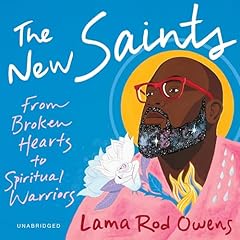
American Detox
The Myth of Wellness and How We Can Truly Heal
No se pudo agregar al carrito
Solo puedes tener X títulos en el carrito para realizar el pago.
Add to Cart failed.
Por favor prueba de nuevo más tarde
Error al Agregar a Lista de Deseos.
Por favor prueba de nuevo más tarde
Error al eliminar de la lista de deseos.
Por favor prueba de nuevo más tarde
Error al añadir a tu biblioteca
Por favor intenta de nuevo
Error al seguir el podcast
Intenta nuevamente
Error al dejar de seguir el podcast
Intenta nuevamente
 Exclusivo para miembros Prime: ¿Nuevo en Audible? Obtén 2 audiolibros gratis con tu prueba.
Exclusivo para miembros Prime: ¿Nuevo en Audible? Obtén 2 audiolibros gratis con tu prueba.
Elige 1 audiolibro al mes de nuestra inigualable colección.
Acceso ilimitado a nuestro catálogo de más de 150,000 audiolibros y podcasts.
Accede a ofertas y descuentos exclusivos.
Premium Plus se renueva automáticamente por $14.95 al mes después de 30 días. Cancela en cualquier momento.
Compra ahora por $37.76
-
Narrado por:
-
Kerri Kelly
Better, stronger, healthier, whole--we’re an America obsessed with self-seeking and self-perfection. We've bought into the idea that with enough intention, dedication, and green smoothies, “wellness” is ours for the taking. But despite a $650 billion industry and infinite good vibes, we don’t feel good. We aren’t happy or healthy. We’re isolated, unwell, and inequitable--and the myth of wellness is making it worse.
In American Detox, yoga activist, wellness disruptor, and CTZNWELL founder Kerri Kelly sounds a wake-up call. We don’t need more green juices and self-care fads--we need to divest from the separation and scarcity that fuel the modern wellness movement and hold us back from making truly positive change for self and society. In the single-minded pursuit of feeling good, we fail to ask: is all this self-focus really making the world a better place? How does the stuff we consume in the name of “wellness” hurt communities and the planet? Whom do we harm when we divorce wellness practices from their cultural origins, and who’s left out?
To build wellness models designed for everyone, we need to dismantle a culture rooted in exclusivity, individualism, consumerism, and white supremacy. We need to resist, disrupt, and dream better futures of what being well can really mean--and do the inner work necessary to unlearn the harmful messages that we’ve internalized about what “healthy” looks like, who gets to be well, and why wellness is not a solo pursuit.
Each chapter includes personal reflections and prompts for collective action to help readers reimagine wellness, understand positionality and privilege, and become agents for whole wellness on a society-level scale.
Los oyentes también disfrutaron:




















Las personas que vieron esto también vieron:

The brutal honesty yet loving approach.
Se ha producido un error. Vuelve a intentarlo dentro de unos minutos.
Learned nothing about detoxing
Se ha producido un error. Vuelve a intentarlo dentro de unos minutos.
too much problem not enough solution
Se ha producido un error. Vuelve a intentarlo dentro de unos minutos.
Chapter 1 weaves the author's experience of 9/11 with a loose amalgamation of ideas related to North American settler colonialism, but for the latter just references stolen land and genocide without referencing a specific event, source, or expert while then implicating them in modern American cultural ethos and seemingly 9/11 itself. If you have been living under a rock, you might not know that a lot of America was built on stolen land by enslaved people and still is not really a just or equitable society, but for the rest of us, there's nothing new. There are also- no solutions. Like 45 min of hearing over and over and OVER words similar to "we have to reckon with our colonizer past before we can build a more equitable future," before a few minutes of solutions which amounted to: visit indigenous lands and pay some land tax, pay attention to what indigenous people are saying. That was it. That's all she has for HOW to actually deal with the past/build a better future. After starting Chapter 2 and listening to a string of inaccuracies about the healthcare system (of course with no citations) I realized it wasn't going to get any better.
This book reads like an impassioned undergraduate student's writing that's full of rhetoric but no research or solutions. And in doing so, really seems to wield the tactics common to the wellness industry itself: making expansive claims in vague terms with no evidence. I want my credit back.
Repetitive rhetoric that sounds like wellness
Se ha producido un error. Vuelve a intentarlo dentro de unos minutos.


